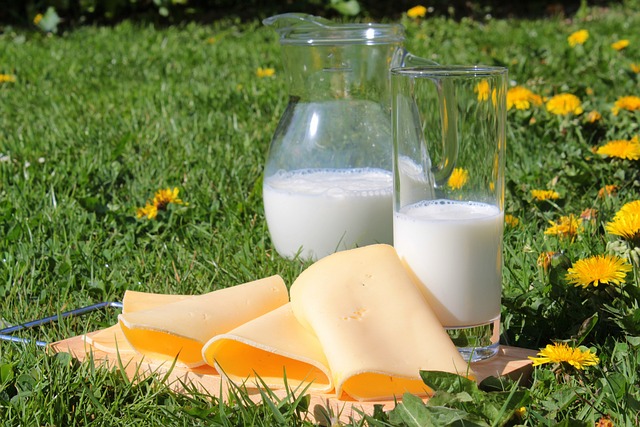Osteoporosis, a condition characterized by weakened bones and increased fracture risk, is a significant health concern, particularly among aging populations. While it’s not entirely preventable, adopting a bone-healthy diet can significantly reduce the risk of osteoporosis and support overall bone strength. Here’s a comprehensive guide to nutrition for osteoporosis management:
Calcium
This mineral is essential for building and maintaining bone density. Incorporate calcium-rich foods such as dairy products (milk, yogurt, cheese), fortified plant-based alternatives, leafy greens (kale, broccoli), almonds, and canned fish with bones (sardines, salmon) into your diet.

Vitamin D
Vitamin D is essential for aiding calcium absorption and supporting bone health. Exposure to sunlight allows the skin to naturally produce vitamin D.. Additionally, include vitamin D-rich foods such as fatty fish (salmon, tuna), egg yolks, fortified dairy or plant-based products, and mushrooms in your diet.
Magnesium
Magnesium contributes to bone structure and density. Incorporate magnesium-rich foods like nuts, seeds, whole grains, legumes, and leafy greens into your meals.
Phosphorus
This mineral works alongside calcium to maintain bone health. Include phosphorus-rich foods such as dairy products, meat, poultry, fish, nuts, seeds, and whole grains in your diet.
Protein
Protein is essential for maintaining muscle mass and supporting bone strength. Include lean protein sources such as poultry, fish, lean meats, beans, lentils, tofu, and low-fat dairy or plant-based alternatives in your meals.

Omega-3 Fatty Acids
These healthy fats have anti-inflammatory properties and may support bone health. Include omega-3-rich foods such as fatty fish (salmon, mackerel), flaxseeds, chia seeds, walnuts, and hemp seeds in your diet.
Limit Sodium and Caffeine
High sodium intake can lead to calcium loss from bones. Avoid processed foods and excessive salt consumption. Similarly, limit caffeine intake from coffee, tea, and energy drinks, as it may interfere with calcium absorption.
Moderate Alcohol Consumption
Consuming alcohol excessively can compromise bone strength and elevate the likelihood of fractures. . Limit alcohol consumption to moderate levels, if at all.
Weight-Bearing Exercise
Engage in regular weight-bearing exercises such as walking, jogging, dancing, or strength training to support bone density and overall bone health.

Conclusion
By prioritizing a nutrient-rich diet, staying physically active, and avoiding harmful habits, you can effectively manage osteoporosis and support bone health as you age. Consult with a healthcare professional or registered dietitian to develop a personalized nutrition plan tailored to your specific needs and health goals.













